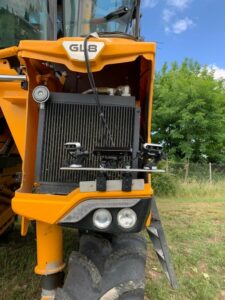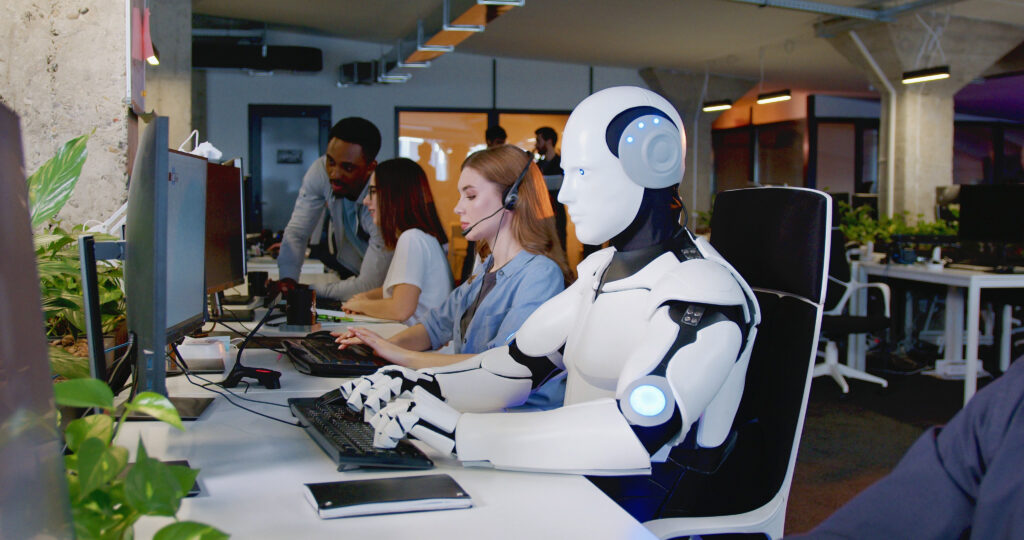More and more people are becoming aware of the importance of a healthy diet and are questioning the origin of their food. This does not make life any easier for food producers, especially in the agriculture sector. A key challenge of farmers is to protet plants from pests and diseases. The aim is to use as few pesticides as possible, or none at all, that can harm the environment and our health.
That’s where modern technology can help. Skaylink is part of the European AI-SPRINT initiative. This initiative aims to develop and implement innovative solutions based on Artificial Intelligence (AI) for smart and sustainable agriculture. Our role in this project is to partner with the agricultural machinery manufacturer Gregoire, a leading manufacturer of vineyard sprayers.
Intelligent spraying technology to reduce pesticide use

Computer vision enables machines to see and understand images. Based on this, we have developed a system that processes images captured by a camera on the front of the sprayer in real time. The system uses sophisticated algorithms to detect the leaf density of each plant and calculate the optimum amount of pesticide to apply. A controller adjusts the spray nozzles according to the computer’ s instructions. The system then sends signals to the controller, which regulates the flow and pressure of the pesticide solution through the nozzles. In this way, we can ensure that each plant receives only the most necessary pesticides to protect it from pests and diseases.
This system has many advantages:
- First, it reduces the environmental impact of pesticide use by minimizing waste and wastewater.
- Second, it improves the quality and safety of our food by reducing pesticide residues in food.
- Third, it saves farmers time and money by optimizing their resources and increasing their productivity.
- Fourth, it improves the well-being and health of farmers by reducing their exposure to harmful chemicals and physical fatigue.
We are currently conducting the first tests of the system in vineyards. We believe that our system can make a difference not only in viticulture, but also in other forms of agriculture such as fruits, berries and vegetables.
Optimised plant health through real-time data and precise analysis
In the current pipeline, when the tractor comes back from the field at the beginning of the spraying season, the system not only optimizes the amount of pesticides sprayed on the plants in real time and massively reduces the amount of pollution, it also records data in the form of images that we’ll later use for disease detection and crop estimation, as well as accurate GPS and positioning data in the form of ROS bags. Since disease detection and crop estimation require more computing power than our tractor can provide, the collected data is automatically transferred to our data preprocessing layer, located in the barn, as soon as the tractor finishes its work for the day and reaches the barn’s solid WIFI connection.
The data is then unpacked and sent to the different pipelines that detect the different types of diseases and map them with the extracted GPS data to create an accurate overview of the vineyard’s health. With this information, decisions can be made about the area and amount of treatment needed to help the plants and not harm the things around them and us.
If you would like to discuss the use of artificial intelligence in your business, please feel free to contact us.
Case Stories

Leveraging cloud AI: Your guide to smoother deployments with AI-SPRINT

